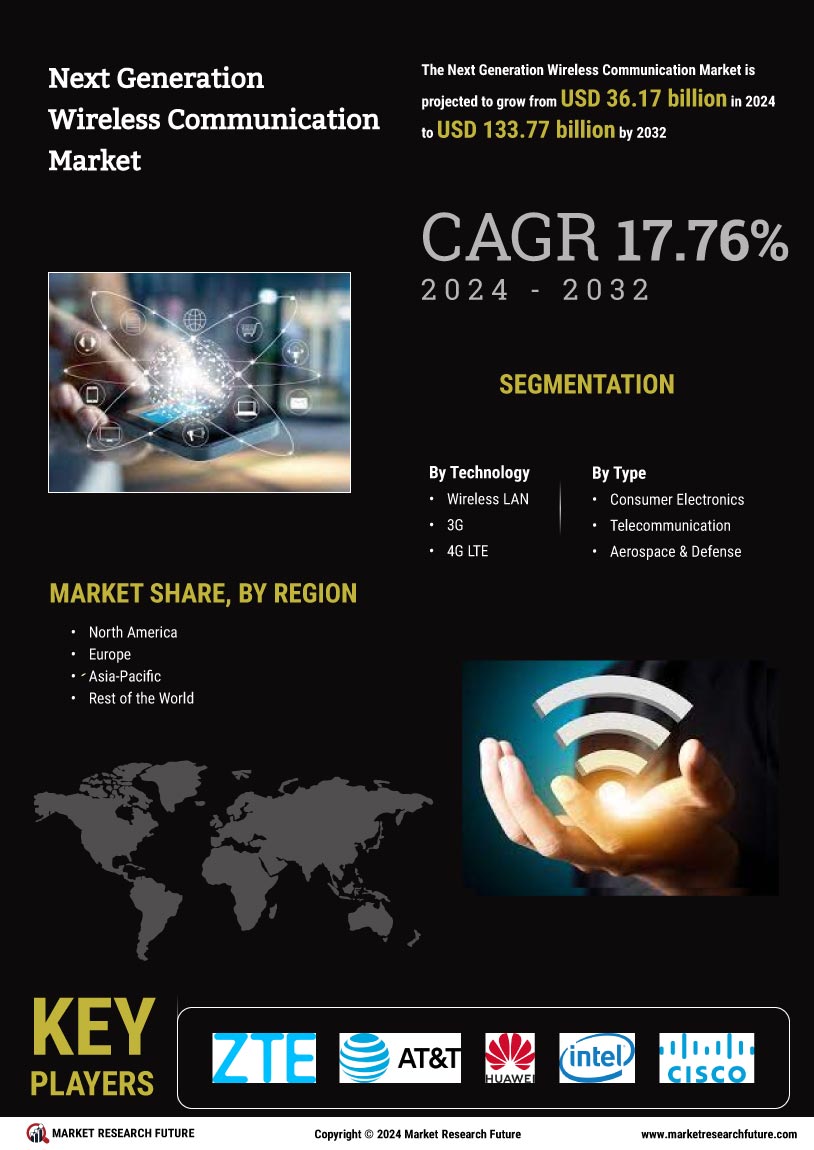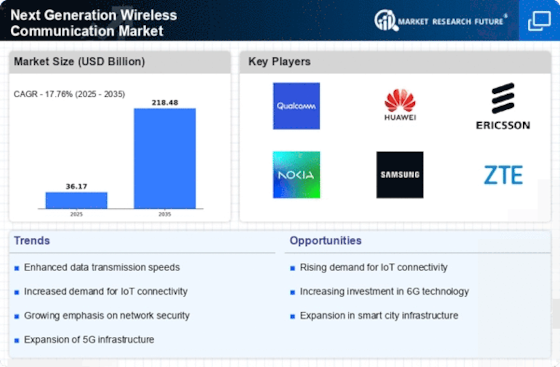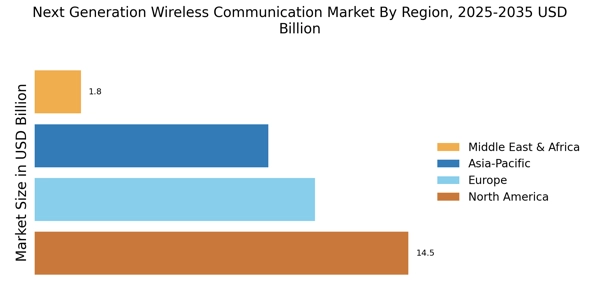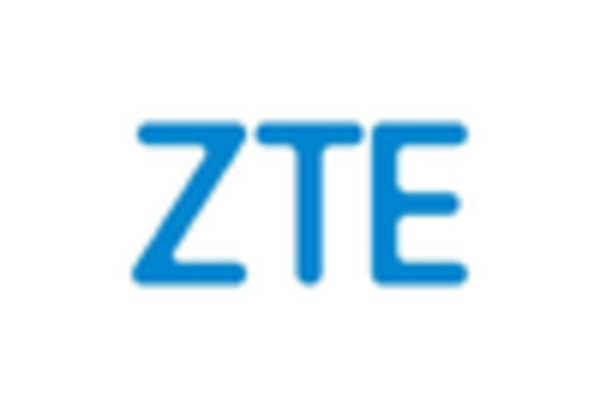Emergence of IoT Applications
The rise of Internet of Things (IoT) applications is transforming the landscape of the Next Generation Wireless Communication Market. With billions of devices expected to be connected, the need for robust wireless communication solutions is paramount. IoT applications span various sectors, including healthcare, agriculture, and smart cities, each requiring reliable and low-latency communication. The market for IoT is anticipated to grow substantially, with estimates suggesting it could reach over 1 trillion dollars by 2025. This growth is likely to drive demand for advanced wireless technologies, as they are essential for enabling seamless connectivity and data exchange among devices. Consequently, the Next Generation Wireless Communication Market is experiencing a paradigm shift, necessitating innovative solutions to support the burgeoning IoT ecosystem.
Growing Focus on Enhanced Security
As the Next Generation Wireless Communication Market evolves, the focus on enhanced security measures becomes increasingly paramount. With the rise of cyber threats and data breaches, stakeholders are prioritizing the development of secure communication protocols. The integration of advanced encryption techniques and secure access frameworks is essential to protect sensitive information transmitted over wireless networks. Moreover, the implementation of security standards is crucial for building consumer trust and ensuring the safe adoption of new technologies. The market for cybersecurity solutions in wireless communication is projected to grow significantly, with estimates suggesting it could reach 200 billion dollars by 2025. This growing emphasis on security is likely to drive innovation and investment in the Next Generation Wireless Communication Market, as companies strive to safeguard their networks against evolving threats.
Advancements in Wireless Technology
Technological advancements are a key driver in the evolution of the Next Generation Wireless Communication Market. Innovations such as 5G technology, which offers significantly higher data rates and lower latency, are reshaping communication paradigms. The deployment of 5G networks is expected to enhance mobile broadband services, enabling new applications such as augmented reality and virtual reality. Furthermore, the market is witnessing the development of advanced antenna technologies and network slicing, which optimize resource allocation and improve overall network efficiency. As these technologies mature, they are likely to attract substantial investments, with projections indicating that the 5G infrastructure market alone could exceed 300 billion dollars by 2025. This technological momentum is crucial for the Next Generation Wireless Communication Market, as it lays the groundwork for future innovations.
Regulatory Support and Standardization
Regulatory support and standardization play a pivotal role in shaping the Next Generation Wireless Communication Market. Governments and regulatory bodies are increasingly recognizing the importance of establishing frameworks that facilitate the deployment of next-generation wireless technologies. Initiatives aimed at spectrum allocation and the promotion of open standards are essential for fostering competition and innovation. For instance, the allocation of spectrum for 5G has been a focal point for many countries, as it directly impacts the speed and efficiency of network rollouts. Moreover, standardization efforts help ensure interoperability among devices, which is critical for the seamless integration of various technologies. As regulatory environments evolve, they are likely to create a more conducive atmosphere for investment and growth within the Next Generation Wireless Communication Market.
Increased Demand for High-Speed Internet
The demand for high-speed internet continues to escalate, driven by the proliferation of smart devices and the growing reliance on cloud-based applications. In the Next Generation Wireless Communication Market, this trend is evident as consumers and businesses alike seek faster and more reliable connectivity solutions. According to recent data, the number of connected devices is projected to reach 75 billion by 2025, necessitating advanced wireless communication technologies. This surge in demand is prompting service providers to invest heavily in next-generation infrastructure, which is expected to enhance user experiences and drive market growth. As a result, the Next Generation Wireless Communication Market is poised for significant expansion, with investments in 5G and beyond becoming increasingly critical to meet consumer expectations.

















